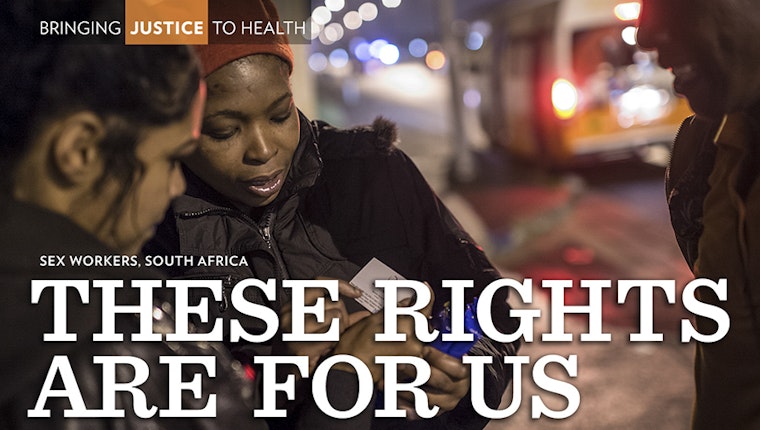In South Africa, Sex Workers Arm Themselves with the Law
By Sebastian Kohn

The criminalization of sex work has dire consequences for the safety and health of sex workers.
Police threaten sex workers with arbitrary arrest, demand bribes, and abuse and sexually violate them. As a criminalized group, sex workers have felt powerless to confront abuse by both clients and police, and in turn, unable to rely on police when they need help. With sex work pushed underground, recent research has shown a strong correlation between criminalization and the risk of HIV infection.
Now, through an innovative program in Cape Town, South Africa, sex workers confront this situation with peer support and legal advice.
Supervised by an attorney at the Women’s Legal Centre—an organization dedicated to equality for women—four former and current sex workers work as paralegals. From contesting a fine to challenging abuse, the paralegals offer sex workers legal support at their office, over the phone, and during regular street-level outreach.
They work in close collaboration with the Sex Worker Education and Advocacy Task Force, a sex worker support and advocacy group, and Sisonke, which is South Africa’s leading sex worker movement. The paralegals complement these groups’ health outreach by ensuring that sex workers know and act on their rights.
In the video above, meet some of the paralegals working to empower sex workers, and see the powerful difference this support has made in one woman’s quest for justice.
The Women’s Legal Centre and the Sex Worker Education and Advocacy Task Force are grantees of the Open Society Foundations. We recognize with sadness the passing of Veliswa “Anita” Mambuma, a paralegal featured in this video.

Sebastian Kohn is a division director in the Open Society Foundations’ Global Programs.


